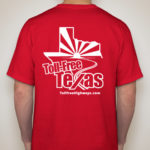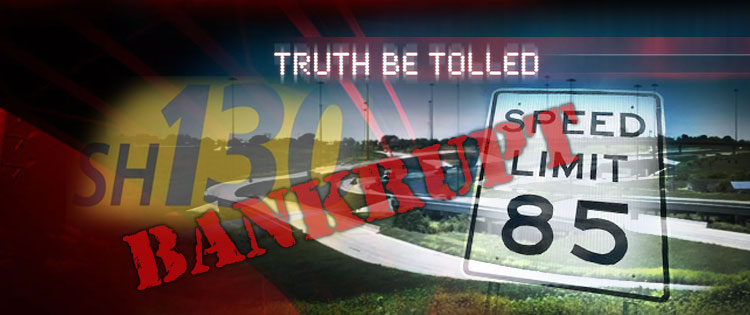IMMEDIATE RELEASE
Coalition’s call for ‘No new toll taxes’ from Trump creates problem for Abbott in Dallas
Grassroots Coalition wants Governor to keep his promise, while they go on offense against Trump plan for tolls
(April 18, 2018 – Austin, Texas) The Texas Conservative Grassroots Coalition’s latest project – strong opposition to parts of the Trump infrastructure plan, which calls for toll roads and corporate welfare public/private partnerships – is being led by Texans Uniting for Reform and Freedom (TURF), Texans for Toll-free Highways, and Grassroots America – We the People PAC. The Coalition’s opposition was voiced in a letter to President Donald J. Trump and expresses widespread displeasure among Texas conservative grassroots leaders with Trump’s infrastructure plan.
“While some have called the Trump proposal DOA on Capitol Hill, we take nothing for granted and made the trip to D.C. to deliver it to the White House personally to ensure the President got the message from a BIG, red state with 38 electoral votes – we don’t want tolls!” declares Terri Hall, Founder/Director of Texans for Toll-free Highways and Texas TURF.
JoAnn Fleming, Executive Director for Grassroots America – We the People PAC stated, “We are much more confident that Texas – under the leadership of Gov. Greg Abbott and Lt. Gov. Dan Patrick – will make much sounder transportation decisions than the far-flung bureaucracy in Washington, which makes no actual progress in stopping wasteful practices or balancing the federal budget! This is why we support a federal block grant of our federal highway funds back to Texas with a bare minimum of federal strings.”
TURF hand-delivered copies to all U.S. House Members serving on the Highways and Transit Subcommittee, as well as all U.S. Senators serving on the Senate Environment and Public Works Committee (the committee that handles surface transportation legislation). In all, TURF visited more than 75 offices in D.C. last week, many of which were sit-down meetings with Congressional Members and the President’s senior staff.
The Coalition also delivered the letter to Gov. Greg Abbott, urging the Governor to stand strong against tolls as he promised to fix Texas roads without new toll taxes, (which he reiterated last fall as he directed the Texas Department of Transportation (TxDOT) to rework 15 toll projects to be completed without tolls). Last week, the Regional Transportation Council (RTC) proposed to defy the Governor, Lt. Governor Dan Patrick, and other state elected officials, such as Sen. Bob Hall and Sen. Don Huffines, who represent the area. The RTC plan advocates adding two toll managed lanes as part of the expansion of I-635 E from US 75 to I-30. Rumblings from the Governor’s office appear to suggest he’ll go along.
Abbott’s Texas Transportation Commission Chairman Bruce Bugg made his intentions crystal clear in a letter to the RTC in March that he expected a non-toll solution or no deal. Angered by the apparent about-face, grassroots leaders have drawn a line in the sand and refuse to budge.
“Managed lanes are toll lanes. Tolls are taxes. This project is not toll viable per TxDOT’s own study and requires taxpayer subsidies. Everyone will pay for it, but only the few who can pay tolls (like the $1/mile on MoPac in Austin), will ever be able to afford to drive on them,” Terri Hall of TURF explains.
In 2015, the legislature passed House Bill 20, requiring TxDOT to put explicit policies in place to ensure the highest priority projects got funded first. Yet, that’s not what happened. The majority of the new funds were allocated to low priority projects, by design, so that TxDOT could claim there’s not enough money to fix the big urban projects. This incentivizes local governments to tap a toll revenue stream for the most congested roads, which creates unaccountable slush funds outside the reach of taxpayers.
Grassroots America’s Fleming says, “This is just another problem of TxDOT’s own making. The voters gave them $5 billion more per year in new funding (with passage of Prop 1 & 7), and they squandered it on low priority projects so they could cry poverty in urban areas and slap tolls on commuters already choking under the burden of toll taxes. Special corporate interests, promoted by anti-taxpayer local government shills, benefit most from these unfettered tolling and multi-leveraging schemes.”
Fleming added, “Working families across Texas have made it abundantly clear that they do not want more toll roads. In fact, 90% of Republican Primary voters approved of a March 6 ballot resolution that stated, ‘No governmental entity should ever construct or fund construction of toll roads without voter approval.’ This means the Republican base has Gov. Abbott’s back on his strong opposition to more toll roads and more debt. His base wants him to keep his campaign promises.”
The RTC’s actions indicate if local governments lobby the Governor and his Transportation Commission for toll ‘managed’ lanes, that they’ll consider giving toll projects a green light despite campaign promises.
“It’ll be used as a model by every other local board, and we’ll end up with tolls everywhere after the Governor promised no more,” Terri Hall predicts.
The Coalition applauds Abbott’s challenge to local governments on an array of anti-liberty and anti-taxpayer local ordinances, and they expect him to continue to keep his promises for the highway system directly under the jurisdiction of the State of Texas.
###


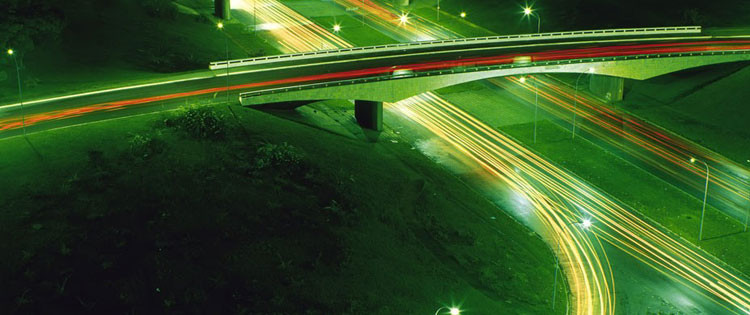

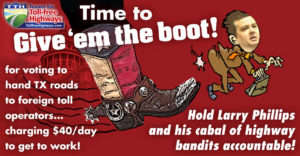
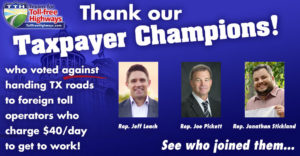

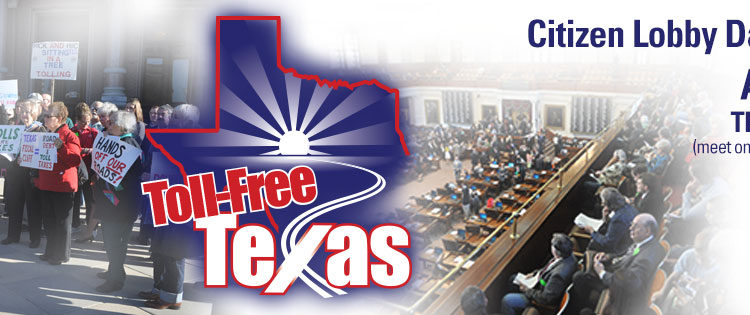
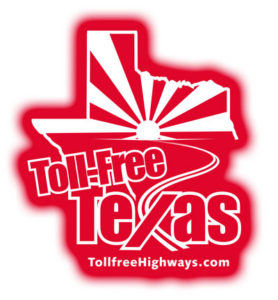
 Concerned citizens from across the state will gather in Austin to interact with lawmakers on transportation-related issues. We’ve seen a massive increase in our cost to drive through tolls, handing control of our public roads to private foreign corporations, and unsustainable debt sweep the state, with more to come unless we make our voices heard.
Concerned citizens from across the state will gather in Austin to interact with lawmakers on transportation-related issues. We’ve seen a massive increase in our cost to drive through tolls, handing control of our public roads to private foreign corporations, and unsustainable debt sweep the state, with more to come unless we make our voices heard.